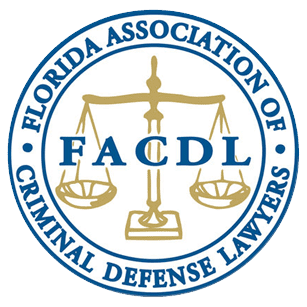If you have been charged with a theft-related offense such as false pretenses, you are likely confused and frightened by the possible ramifications that could follow a conviction. Depending on the value of the stolen property, you could face misdemeanor or felony charges. A felony can carry harsh consequences, such as years in state prison and a criminal record that will mark you for life.
Sarasota fraud and theft lawyer Erika Valcarcel understands how devastating this charge can be. With time spent as both a prosecutor and a defender, she can anticipate the prosecution’s strategy in order to craft a compelling defense. Attorney Valcarcel will work diligently to prove your innocence and protect your rights.
Call (941) 363-7900 now to see if your charges can be eliminated or reduced in court.
Understanding False Pretenses
False pretenses, commonly known as obtaining property by false pretenses, is confused with a number of offenses. According to Florida Statute, this crime occurs when an individual lies or misrepresents facts in order to obtain a property title. False pretenses involve the actual transfer of ownership, whereas larceny-by-trick simply entails telling a lie in order to steal something. The following elements must be proven beyond a reasonable doubt in order to reach a conviction for this offense:
- The perpetrator obtained the title of another person’s personal property; and
- This was done by means of a lie or misrepresentation; and
- The perpetrator intended to defraud the victim
In false pretenses cases, the lie that was told must be a major, if not the only, factor that led to the title transfer. Imagine, for example, a person offering to buy a house for $300,000. The buyer lies to the owner, saying they will be able to pay the full price in cash. Once the owner signs over the title, it is discovered that the buyer is bankrupt. In this scenario, the lie was believed by the homeowner. It was also the main reason for the title transfer, meaning that false pretenses have been committed.
Penalties and Collateral Consequences
In Florida, the crime of false pretenses is treated similarly to petit theft and grand theft. The severity of the crime depends entirely on the value of the stolen property. When the larceny involves property that is worth less than $100 or between $100 and $300, the crime is filed as a second-degree misdemeanor or a first-degree misdemeanor, respectively. On the other hand, the theft of property valued between $300 and $20,000, $20,000 and $100,000, and more than $100,000 will be classified as a third-degree felony, a second-degree felony, and a first-degree felony, respectively. Penalties for this crime include, but are not limited to:
- Second Degree Misdemeanor: A fine of up to $500 and up to 60 days in jail
- First Degree Misdemeanor: A fine of up to $1,000 and up to 1 year in jail
- Third Degree Felony: A fine of up to $5,000 and up to 6 years in prison
- Second Degree Felony: A fine of up to $10,000 and up to 15 years in prison
- First Degree Felony: A fine of up to $10,000 and up to 30 years in prison
There are also collateral consequences that come with being convicted of a crime, especially one involving dishonesty. Finding a job, for example, might be all but impossible. Few employers jump at the chance to hire someone with a criminal record. Continuing your education might also be stifled, as most colleges and universities vet applicants before admitting them. What’s more, most scholarships are off-limits to those with conviction histories.
Defenses Against Fraud & Theft Charges in Florida
Hiring an experienced lawyer is the best way to maintain your freedom. Attorney Erika Valcarcel can employ a number of defenses in order to get your charges eliminated in court. One of the most effective strategies is proving that you never intended to defraud the original property owner. Perhaps all of your funds were stolen after you promised to make a payment, or maybe you genuinely believed that you would be able to pay once the title was transferred. It might also be the case that the supposed victim did not believe the lie that led to the transfer of ownership. If the lie was not genuinely believed, false pretenses did not take place.
Let Erika Valcarcel, Criminal Defense Lawyer, P.A. Protect Your Freedom
If you have been accused of false pretenses, it may feel like you could be harshly punished for a small mistake. From ruined job opportunities to altered relationships with loved ones, there is no area of life left unaffected. Sarasota fraud and theft attorney Erika Valcarcel at Erika Valcarcel, Criminal Defense Lawyer, P.A. realizes that this charge can uproot everything you have worked so hard to establish. She believes that the key to developing an effective defense is getting to know you and gathering all the relevant evidence.
Call (941) 363-7900 today to see how you can avoid spending time behind bars.


